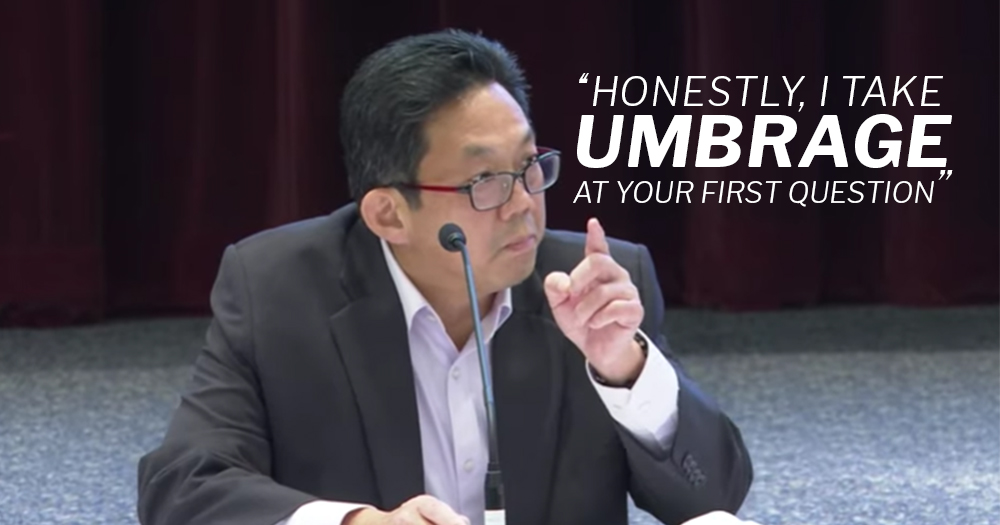- Joined
- Jul 16, 2008
- Messages
- 28,029
- Points
- 113
The Decline of The Straits Times
Derwin Pereira
It cannot but be a professional shame when a national newspaper ceases to reflect the spirit of the nation and appears to have been produced anywhere by anyone. Sadly, that is what has happened to Singapore’s national English-language daily, The Straits Times, because of an editorial drift towards mediocrity whose results are apparent across the crucial areas of news and commentary. As a former ST staffer whose reportorial and analytical skills were honed at what was once a national institution, I find this drift intolerable.
The quality of news reporting has not declined perceptibly over the past year. ST’s print edition remains the default source of Singapore news. No other news organisation can match its breadth and depth. The paper upholds its mandate of reflecting the national interest by making ministerial speeches and press releases accessible and tangible to readers. ST reports news factually and contextually, which is critical in an age of disinformation in which fake news masquerades as journalism.
The problem with the news pages lies in the suspicious disappearance of the analytical and interpretative aspects of news coverage. Before the past year or so, it was habitual to read news articles accompanied by analyses when they were warranted by the importance of developments. The epitome of those analytical articles was the From the Gallery column that interpreted Parliamentary proceedings of the day from the point of view of the citizen-reader.
This way, Singaporeans developed a stake in the deliberations of the highest political forum of the land. True, depending on their political persuasions, some readers might not have found the interpretation to their liking, but they had something to not like. Now there is nothing to like or to dislike. The Gallery is empty where ST’s analysis is concerned. So much for a paper produced apparently in the national interest.
This observation leads to the crucial area of value-added journalism. Newspapers, whether print or digital or both, cannot exist simply by their ability to gather, process and present news. They must do that, of course, but it is a necessary and not a sufficient function. Newspapers must add interpretative value to the news so that readers find their pages, whether digital or physical, worth the eyeball time spent on them.
From a national-interest perspective, the ability to add value to the news contributes to the credibility of what is known as agenda-setting in journalism. Media entities set the social agenda by creating a contextual framework for the transformation of raw news into readers’ coherent reflection, understanding and judgement of that news, thus influencing popular responses to the times. ST is not setting the Singapore agenda any more.
The absence of Singapore-centric analysis is obscenely apparent in the paper’s so-called Opinion section. In my opinion, Singapore is disappearing from the miserable pages of that section. As if articles reproduced verbatim from The Economist and The Financial Times were not enough, the unrelenting pontifications of a magisterial Global Affairs Correspondent sitting in Britain appear unfailingly in the pages. Is there no one in Singapore sufficiently qualified to comment on the world from a Singapore perspective, which I fail to decipher in the work of this particular correspondent?
Of course, there is a Singaporean who comments dutifully and regularly on Singapore society – but from her perch in Australia, to which she has relocated. What is she doing in the pages of a purportedly Singaporean newspaper?
It will not do to say in response that one can be anywhere in a globalised world but still “be” here in Singapore. It will not do to say that the same holds true for coverage of any other country. If so, why does ST employ, no doubt at considerable expense, a veritable team of full-time foreign correspondents in Malaysia, Indonesia, China, India, Japan and the United States? Surely, they could sit here in a globalised Singapore and cover the region and the rest of the globalised world?
The quality of their work is uneven, to put it diplomatically. As a former ST correspondent in Indonesia and the United States, all I can say is that the standards were high in my times. I was supposed to report on crucial aspects of those countries that were glossed over by other media, which I tried to do to the best of my Editor’s expectations. It was of no small satisfaction for me to discover that ST was read by discerning Americans for the paper’s coverage of Indonesia, which Americans could not find even in their own newspapers. Where have those times gone?
I fear for the future of an ST that fails to inform Singaporeans credibly about their own country and the region. I dread the day when ST, and even SPH Media, might end up incorporated within the far superior journalistic ambit of Mediacorp, whose Channel News Asia website is not only accurate and fast but also provides news and the occasional commentary without a paywall.
To save itself, ST must reclaim its core mission of holding up a daily mirror to Singaporeans. Now that the Government is subsidising SPH Media, Singaporean taxpayers have even more reason than before to demand that they see their nation reflected faithfully in the newspaper.
Only a new editorial dispensation can keep ST a national newspaper.
I have a vested interest in ST. It is not the kind of interest that is based on making money from it, for I do not depend financially on the paper. It is the kind of interest that depends on Singapore, whose media organisations should manifest its reality as a nation.
I do not wish to witness ST's possibly terminal decline -- on its own pages. That would be a national shame.


